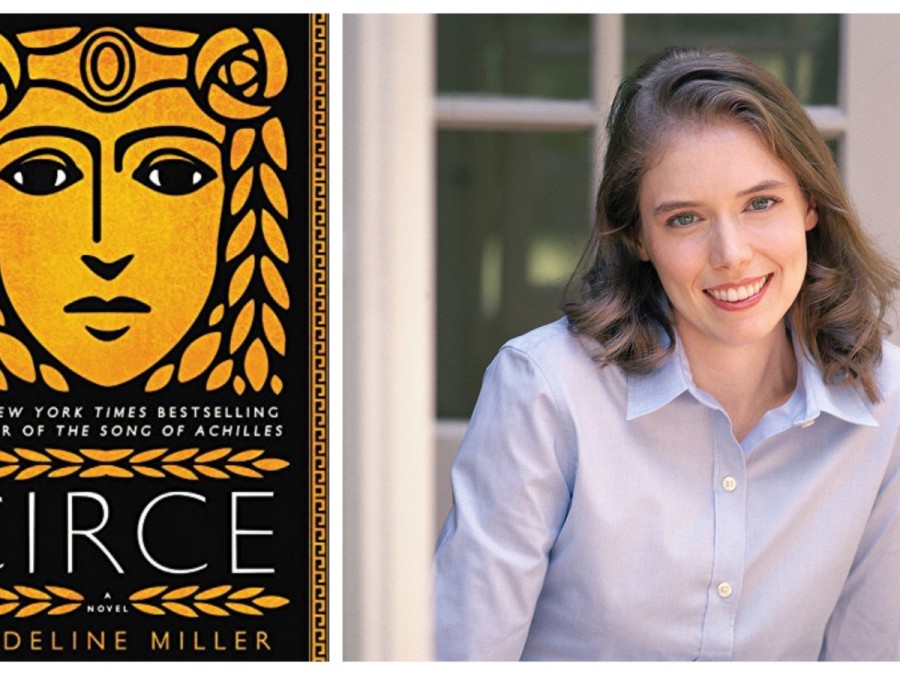The Author Of Greta’s Favorite Book! (Of 2018): Madeline Miller On ‘Circe’
By Greta Johnsen

The Author Of Greta’s Favorite Book! (Of 2018): Madeline Miller On ‘Circe’
By Greta JohnsenIf you were bored by Homeric epics and Greek mythology in high school and college, Nerdette highly encourages you to reconsider.
“There is a reason these stories have lasted for 3,000 years,” said Madeline Miller, author of Nerdette host Greta Johnsen’s favorite book of 2018, a novelization of The Odyssey called Circe.
“[These stories] are incredibly insightful about human nature,” Miller said. “Culture has changed and the way we go to war has changed, but the stories we tell about war and about loss and grief – even things like post-traumatic stress disorder – the Greeks understood all of that.”
Miller said she novelized the story of Circe, a witch from The Odyssey who turns men into pigs, because she wanted more freedom to explore the character.
“There were things I couldn’t answer in papers that I wanted to answer in a different way,” she said.
Miller talked with Greta about her book, other translations of ancient texts, and what makes literary canon. Below are highlights.
Putting women at the center of epic stories
Madeline Miller: I sort of come at it from two ways. One is that I think that’s one of the reasons that I wanted to write these books, because in both cases, I felt like I was excavating a perspective that was being obscured in the original.
I was looking from a female perspective in the very sort of male-oriented Odyssey, trying to set a female at the center of epic. One of the things about epic is it’s a predominantly male genre. It’s all about death, heroics, battles and all things that are traditionally associated with men, and so I wanted to turn that on its head and bring out some other epic things that have been excluded from those narratives. Epic things like birth, which is every bit as epic as death, if not more so.
On Circe, a witch who lives alone on an island
Miller: Part of what I was looking at with Circe is the fact that she has to live alone. That is the only way she is able to have her independence but it also exposes her. Surrounded by her family, they’re just as likely to hand her off to somebody and marry her to someone she doesn’t want to be with.
This is kind of Virginia Woolf, A Room of One’s Own, in order to have independence and intellectual freedom. She needs an island of her own. But there are dangers and costs associated with that in this very hostile world, in this world that is hostile to women, and it sort of sees women as property that men are entitled to if they catch you alone. I thought about that moment a lot.
Reconsidering what makes a classic
Miller: I sort of find myself in this strange position, because the two things I love most in the world and am most obsessed with are classics and Shakespeare, which are kind of the ultimate dead white males. And I personally love them, and I’ve spent tons of time looking at them both, but I also do not believe in the idea of the Western canon as it has been constructed.
My favorite author maybe after that is James Baldwin. I think we need to really throw open the doors and examine exactly as you say, all these works that were shut out, all these voices that were shut out, and allow them to come in.
‘Radically’ altering the perspective of epics
Miller: One of the things that was really fun [was] looking at the scenes in The Odyssey where Circe appears and radically trying to alter that perspective.
One of the classic descriptions of Circe is that she has well-dressed hair, she has this beautiful fancy hair-do. Sometimes she’s described as having shining braids or pretty braids or something like that.
That is the thing that Odysseus goes home and boasts about, you know, “I bagged the goddess who has beautiful hair and she’s really gorgeous and fancy.”
But, Circe is a witch who lives on an island, who is constantly tramping around the woods picking up herbs, talking to her lions and her wild boars, so of course she’s braiding her hair. That’s just practical.
This interview has been edited for brevity and clarity. Click the “play” button to listen to the entire conversation, which was produced and adapted for the web by Sofi LaLonde.
